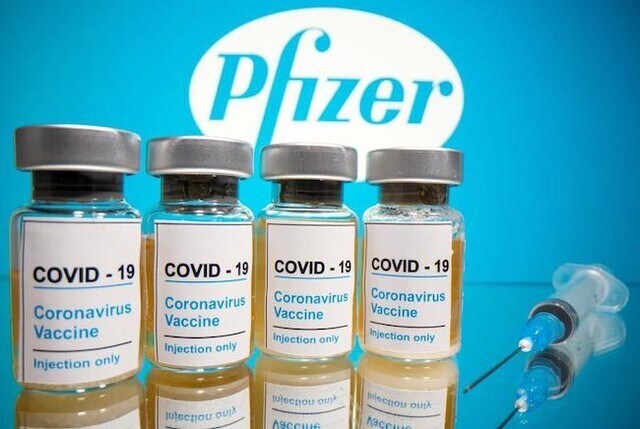An intense discussion on the value of COVID-19 vaccines took place in Sudbury on Wednesday morning, right around the same time that the federal government through Health Canada was giving formal approval to the Pfizer-BioNTech vaccine. Despite that, the speakers indicated that the pandemic is not over.
The webinar event was part of the continuing series; Let's Talk About COVID-19 jointly sponsored by Laurentian University and Science North. The speakers included Dr. Alain Simard, medical sciences associate professor at the Northern Ontario School of Medicine, Dr. Farukh Jebeen, Laurentian University Dept. of Chemistry and Biochemistry and Amy Henson, staff scientist at Science North.
As discussion began, Henson asked Simard to explain what happens when a vaccine is administered.
"In order to understand how a vaccine works, we have to understand how our immune system works. So typically if our body gets infected by a virus for example, that virus enters our body and our immune cells need to be trained to recognize it," said Simard.
"So the first time they recognize it, the immune response is going to be somewhat weak. It's going to be a bit slow because the cells need to multiply to get rid of that virus. So essentially that's what a vaccine does," Simard said.
He said a vaccine is usually a dead version of the virus or parts of a virus with some of the protein in it. He said it is just enough to send a signal to the immune cells to essentially say, “this is something to attack and remove from the body.”
"The one we're talking about now is a new type of vaccine. It does provide some new ways to train our immune system against COVID for example. In this case what we're doing is we are injecting some mRNA (messenger RNA)," Simard explained.
"Essentially it is part of the genetic material of the virus. And the reason we do this is because of how viruses work. Once they get inside our bodies, they infect the cells. They spend most of their time inside our cells multiplying and making more viruses. Eventually, they will kill the cells or they will figure out a way to get out of the cells and go and infect more cells," said Simard.
He went on to explain that by injecting elements of the mRNA into a person, it goes to their cells and creates one type of protein only. It does not replicate all the proteins in the virus.
"So we're not making the virus, just a protein. And by using the cells to make this protein that's how we are training our immune cells to recognize that one protein," said Simard. "So if ever the virus comes in, our immune cells will be all ready to recognize the virus and try to get rid of it."
A member of the public asked when and if the vaccine would be safe for children, considering that most of the trials were done on adults.
Dr. Jabeen responded that children do indeed get infected with COVID-19, but she said the impact is not as severe as with adults.
Health Canada and other international health agencies have said that studies involving children have not been completed.
"The death rate is very low. Even in critical stages, it is really, really low," said Jabeen.
"I think it's their body weight and their immune system that can combat the disease. And they get really good in just a few days.”
Jabeen spoke of her own niece, an 18-month-old, who became infected with COVID-19. The child's father also became infected.
Jabeen said the child got better in two days whereas the father was sick for nearly three weeks.
"So the children, they transmit COVID. They are actually dangerous to transmit to the adults. And the most cases and most critical cases in this situation are reported among adults, not in the children," said Jabeen.
As host of the event, Henson threw out the question: Should people continue wearing face masks if they get the vaccine?
Simard said the main thrust is to get rid of COVID-19 but it is still important to protect people who are vulnerable who might suffer severe symptoms or have long-term effects from the virus.
"There are reports of long-term neurological symptoms for example," said Simard.
"If we have to wear a mask in public, to me, it is a small price to pay to protect others," he added.
For the final question of the event, Henson asked if the vaccine is Canada's way out of the pandemic.
"Yes," said Jabeen. "It is the only solution."
She said the pandemic has turned everything upside down, disrupting the economy and spawning mental health issues among the general public struggling with isolation and pandemic restrictions. Jabeen said a vaccine is the only solution and she added she hopes to see positive changes and improvements by March.
Simard responded by saying yes and no. He said the vaccine would be a great help, a powerful tool to knock down the pandemic.
"But I don't think it is going to completely get rid of COVID. I think we are going to have to live with it for a very long time, maybe forever."
He said he expects COVID-19 might become a seasonal problem.
Len Gillis is a Local Journalism Initiative reporter at Sudbury.com. The Local Journalism Initiative is funded by the federal government.



